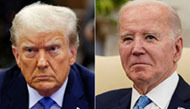Is It the Real Thing? Again, Coke Says No
So what other topic could be so weighty, so captivating that it would cause the radio show’s Web site to crash under a stampede of visitors?
A soft-drink recipe.
The host, Ira Glass, revealed on a recent show what he claimed was the original formula for Coca-Cola. He found it buried in a little-noticed article in the archives of The Atlanta Journal-Constitution.
The recipe spread across the Internet, republished everywhere from CNN to Al Jazeera. A television show in Australia made its own Coke on air.
“It’s sobering,” Mr. Glass said. “We’ve done a lot of serious reporting on many serious things. But nothing that got the attention that we got from taking on a soft drink.”
Coke, as it always does, insists the recipe is inaccurate. The real formula, it says, remains in a bank vault in Atlanta.
People have long been excited by the promise of cracking the culinary code of their favorite foods.
Companies, too, have long seized on the power of culinary secrets. KFC’s famous “11 herbs and spices” and the “secret sauce” at McDonald’s have helped make the companies billions.
The allure makes some loyal customers even more devoted. Not that long ago, cooks got so obsessed with creating the Twinkie snack cake at home that Williams- Sonoma, the houseware retailer, began selling the molds. Todd Wilbur, a former reporter, has built an empire on selling top-secret recipes in books and on his Web site.
What’s notable is that some people now want to know secret corporate recipes with the passion others reserve for heirloom family recipes, said Laura Shapiro, a food historian .
When food made in factories became part of the diet at the turn of the last century, it was marketed as clean, pure and close to homemade. Then, things changed. Marketers exploited the convenience, unique tastes and secret formulas that could come only from a corporate test kitchen. “People think of packaged food as notably elusive,” she said. “Like how does that little blob of cream get inside the Hostess cupcake?
” But no company has a history of secrecy quite like Coke, which claims that only a handful of executives know how to make the soda flavoring it calls “Merchandise 7x.”
In 1960, E. J. Kahn Jr. listed many of the original ingredients for Coke in his book “The Big Drink.” Then came the 1979 article in the Atlanta newspaper that “This American Life” rediscovered. And in the 1990s, Mark Pendergrast, a historian, found a recipe in the company’s own archives, written by the beverage’s inventor. But in all of these cases, Coca-Cola denied their authenticity.
The company does not file trademark lawsuits against imitators because it would have to reveal the formula in court.
And even though people love learning secrets, they love having secrets. As long as Coke denies the imitations, many drinkers will continue to believe there is only one Real Thing.
Phil Mooney, Coke’s archivist, says other recipes only make Coke taste better by comparison. “They’ll make this recipe, and then they’ll come crawling back to Coke,” he told Mr. Glass: “Real Coke will have never tasted so good.”
By ROBBIE BROWN and KIM SEVERSON
스마터리빙
more [ 건강]
[ 건강]이제 혈관 건강도 챙기자!
[현대해운]우리 눈에 보이지 않기 때문에 혈관 건강을 챙기는 것은 결코 쉽지 않은데요. 여러분은 혈관 건강을 유지하기 위해 어떤 노력을 하시나요?
 [ 건강]
[ 건강]내 몸이 건강해지는 과일궁합
 [ 라이프]
[ 라이프]벌레야 물럿거라! 천연 해충제 만들기
 [ 건강]
[ 건강]혈압 낮추는데 좋은 식품
[현대해운]혈관 건강은 주로 노화가 진행되면서 지켜야 할 문제라고 인식되어 왔습니다. 최근 생활 패턴과 식생활의 변화로 혈관의 노화 진행이 빨라지고
사람·사람들
more많이 본 기사
- 총격 상처 피해 진학한 대학서 또 총기난사… “엄청난 타격”
- 승부사끼리는 통한다…젠슨 황의 트럼프 공략 비결은
- “尹, 반대자 반국가세력 몰아…계엄배경에 김건희 사법리스크”
- 제트블루 여객기, 카리브해 상공서 미군 급유기와 충돌 위기
- 시드니 유대인 총기참사 용의자는 50세 아버지·24세 아들
- 연준 의장 후보 ‘2명의 케빈’… ‘월가 황제’는 누구 지지?
- 日, ‘스마트폰 앱 빅테크 규제법’ 18일 시행…구글·애플 겨냥
- 尹 ‘한덕수 재판 위증’ 재판 내달 13일 시작…특검 추가기소
- 검찰, ‘254억 횡령’ 유병언 차남 유혁기에 징역 8년 구형
- 특검 “尹, 2023년 10월 이전 계엄 준비…권력 독점·유지 목적”
- 李대통령 “’4·3 강경진압’ 박진경 유공자 등록 취소 검토하라”
- 故 김지미에 금관문화훈장…마지막 말은 “보고싶다 사랑한다”
- 경찰, 통일교·전재수 사무실 등 압수수색…첫 강제수사
- 트럼프, 시리아內 미군공격에 연일 보복 거론… “큰 피해 있을것”
- 김지수, 꿀꿀했던 韓 떠났다.. “에펠탑 보니 메마른 낭만 살아나”
- 美장성의 소신발언… “대통령 명령이라도 합법여부 따져볼것”
- ‘이럴수가’ 송성문 ‘120억 초대박 계약’ 무효 가능성 현실화, 美 현지 소식 나왔다 “MLB서 최소 5개 구단 관심”
- “트럼프, 바이든 데자뷔인줄” 취임 1년새 고령 논란·지지율 뚝
- 1년→6개월→0일… “오픈AI, 입사 첫날부터 스톡옵션 부여”
- 성탄절 초록잎 아래 5초간 1천435쌍 입맞춤…워싱턴 기네스기록
- 젤렌스키 “나토 가입 대신 서방 집단방위 보장으로 타협”
- [특파원시선] 외식비 줄이는 미국… ‘30% 요구’ 팁 공포도 한몫?
- ‘53세’ 김민종 “2년 안에 결혼한다” 폭탄 발언..일·사랑 모두 잡을까
- 바비킴, 15년 만에 ‘기내 난동 논란’ 재언급.. “공격적 태도 사과하고파”
- 호주 총격범 제압 시민 영웅은 43세 과일가게 주인 아흐메드 씨
- 시드니 해변 총격 사망자 16명으로 늘어…1명은 어린이
- ‘통일교 1억 수수’ 권성동 국민의힘 의원, 법원에 보석 청구
- 시리아 “미군 살해범, IS 연루 의혹에 해고 직전 범행”
- BTS 정국·에스파 윈터, 열애설에 침묵 후 근황..논란 언급 없이 팬들과 소통
- 변요한♥티파니, 약지에 ‘커플링·포르쉐’..열애 中 티냈다
- “머스크처럼…” 미국인 대리모 통해 2세 퍼트리는 中재벌
- ‘연준의장 후보’ 해싯 “대통령 목소리는 의견일뿐…FOMC가 투표”
- 윤영호, ‘플리바게닝’ 노렸나…자충수 된 ‘민주당 금품’ 진술
- 李대통령, 오늘 라오스 주석과 정상회담…초국가범죄 대응 논의
- 시드니 해변 총격 사망자 16명으로 늘어…1명은 어린이
- 내년 중간선거 낙관못하는 트럼프… “경제성과 전달에 시간 걸려”
- ‘김민재 점점 독일 국대에 밀린다’ 독일 현지, 타 향해 연일 찬사... “뮌헨 최고의 영입, 진정한 수비 리더”
- 뉴욕 백화점서 아기 기저귀 갈던 엄마, 정신질환자에 흉기피습
- ‘단 4개월 만에’ 손흥민 美 정복, MLS 공식 ‘올해의 영입 2위’... “리그 판도 뒤바꿔”
- “사초 쓰겠다”던 내란특검 ‘180일 대장정’ 마침표…24명 재판에
- 계엄 동기·김건희 역할 밝힐까…내란특검, 오늘 수사결과 발표
- 트럼프 특사 “우크라와 5시간 회담서 많은 진전…15일 재개”
- 도쿄행 유나이티드 항공편, 엔진 고장에 워싱턴으로 회항
- 10석 안팎까지?…내년 한국 지방선거 때 ‘미니 총선급’ 재보선 가능성
- 내년 중간선거 낙관못하는 트럼프… “경제성과 전달에 시간 걸려”
- 1124일만 선고.. ‘20억 횡령 인정’ 박수홍 친형 결론은?
- 주말 濠·美서 총기사건…시드니 11명·브라운대 2명 사망
- 조미김, 미국 수출관세 ‘면제’됐다…K-김 최대시장서 날개
- ‘무려 키패스 3회+평점 8.2’ 이강인 특급 맹활약, 5호 공격P 작렬... ‘간신히’ PSG 선두 탈환
- 정용진 신세계그룹 회장, 밴스 부통령 성탄절 만찬 참석
1/5지식톡

-
 테슬라 자동차 시트커버 장착
0
테슬라 자동차 시트커버 장착
0테슬라 시트커버, 사놓고 아직 못 씌우셨죠?장착이 생각보다 쉽지 않습니다.20년 경력 전문가에게 맡기세요 — 깔끔하고 딱 맞게 장착해드립니다!장착비용:앞좌석: $40뒷좌석: $60앞·뒷좌석 …
-
 식당용 부탄가스
0
식당용 부탄가스
0식당용 부탄가스 홀세일 합니다 로스앤젤레스 다운타운 픽업 가능 안녕 하세요?강아지 & 고양이 모든 애완동물 / 반려동물 식품 & 모든 애완동물/반려동물 관련 제품들 전문적으로 홀세일/취급하는 회사 입니다 100% …
-
 ACSL 국제 컴퓨터 과학 대회, …
0
ACSL 국제 컴퓨터 과학 대회, …
0웹사이트 : www.eduspot.co.kr 카카오톡 상담하기 : https://pf.kakao.com/_BEQWxb블로그 : https://blog.naver.com/eduspotmain안녕하세요, 에듀스팟입니다…
-
 바디프렌드 안마의자 창고 리퍼브 세…
0
바디프렌드 안마의자 창고 리퍼브 세…
0거의 새제품급 리퍼브 안마의자 대방출 한다고 합니다!8월 23일(토)…24일(일) 단 이틀!특가 판매가Famille: $500 ~ $1,000Falcon: $1,500 ~ $2,500픽업 & 배송직접 픽업 가능LA…
-
 바디프렌드 안마의자 창고 리퍼브 세…
0
바디프렌드 안마의자 창고 리퍼브 세…
0거의 새제품급 리퍼브 안마의자 대방출 한다고 합니다!8월 23일(토)…24일(일) 단 이틀!특가 판매가Famille: $500 ~ $1,000Falcon: $1,500 ~ $2,500픽업 & 배송직접 픽업 가능LA…
케이타운 1번가
오늘의 1면
오피니언

22기 LA평통 출범에 거는 기대

연말 시즌 사기·범죄 경계해야
 메건 매카들 워싱턴포스트 칼럼니스트
메건 매카들 워싱턴포스트 칼럼니스트 [메건 매카들 칼럼] 장편영화의 마지막 챕터인가
 김미선 서북미문인협회 회장시인
김미선 서북미문인협회 회장시인 [한국춘추] 하늘을 계산한 사람들, 칠정산
 이희숙 시인·수필가
이희숙 시인·수필가 [금요단상] 그을린 자리에서 다시
 심상용 / 서울대 미술관장
심상용 / 서울대 미술관장 [미술 다시보기] 지옥에 대하여
 서정명 / 서울경제 기자
서정명 / 서울경제 기자[만화경] 주한미군과 ‘도련선 리스크’
 한 영 재미수필가협회 회장
한 영 재미수필가협회 회장 [한영의 독서칼럼] 불안한 사람들
 정영현 서울경제 테크성장부장
정영현 서울경제 테크성장부장 [여명] 콘크리트가 데이터가 됐을 뿐, 달라진 게 없다
1/3지사별 뉴스

“마약밀매·인신매매 등 국제범죄 척결” ‘국토안보 태스크포스’ 뉴욕지부 출범
연방 국토안보부가 10일 ‘국토안보 태스크포스’(HSTF) 뉴욕지부를 출범시켰다.HSTF는 마약 카르텔, 인신매매, 자금세탁, 갱단 등 국제범…
‘오바마케어 보조금’ 올해 말 종료 가능성 ↑ 커져

한국 교사 10명, 페어팩스 초등교 배치
‘글로벌 앰버서더 티처스 프로그램’(Global Ambassador Teachers Program)은 국제 교사 교환 프로그램 가운데 하나로 …
김찬수씨, 포토맥 포럼에 2천달러 기부

시드니 해변 총격 사망자 16명으로 늘어…1명은 어린이
호주 시드니 해변 유대인 행사장의 총기 난사 사건 사망자가 어린이 1명을 포함해 16명으로 늘었다.라이언 파크 뉴사우스웨일즈(NWS)주 보건부…
내년 중간선거 낙관못하는 트럼프… “경제성과 전달에 시간 걸려”

오늘 하루 이 창 열지 않음 닫기 





















































.png)


댓글 안에 당신의 성숙함도 담아 주세요.
'오늘의 한마디'는 기사에 대하여 자신의 생각을 말하고 남의 생각을 들으며 서로 다양한 의견을 나누는 공간입니다. 그러나 간혹 불건전한 내용을 올리시는 분들이 계셔서 건전한 인터넷문화 정착을 위해 아래와 같은 운영원칙을 적용합니다.
자체 모니터링을 통해 아래에 해당하는 내용이 포함된 댓글이 발견되면 예고없이 삭제 조치를 하겠습니다.
불건전한 댓글을 올리거나, 이름에 비속어 및 상대방의 불쾌감을 주는 단어를 사용, 유명인 또는 특정 일반인을 사칭하는 경우 이용에 대한 차단 제재를 받을 수 있습니다. 차단될 경우, 일주일간 댓글을 달수 없게 됩니다.
명예훼손, 개인정보 유출, 욕설 등 법률에 위반되는 댓글은 관계 법령에 의거 민형사상 처벌을 받을 수 있으니 이용에 주의를 부탁드립니다.
Close
x